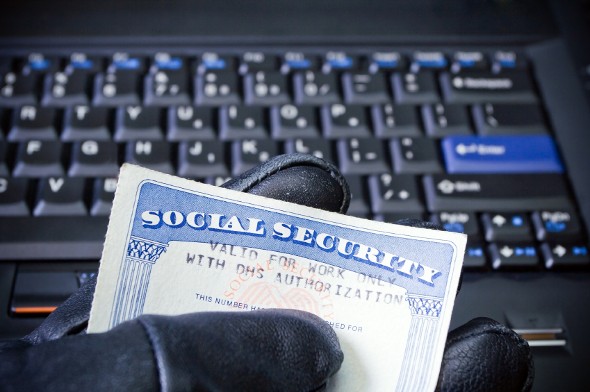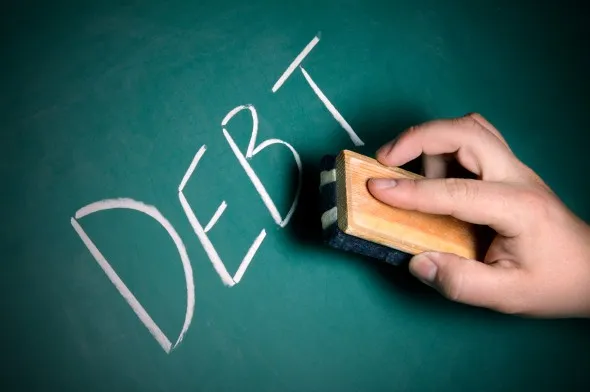A tax refund can come in handy when you need to pay down student debt or you want to pad your emergency savings. But waiting for the money to hit your bank account can be nerve-wracking. According to the IRS, most refunds filed electronically are processed within 21 days. For some unlucky taxpayers, the wait can be much longer. If you find yourself relying on your refund year after year, you might need to work with a financial advisor to put a proper financial plan together. Here are eight reasons why its arrival could be delayed.
1. You Made an Error on Your Tax Return
When tax returns are received, they’re subjected to a cursory review to make sure the information you provided matches up with what the IRS already has on file. If you entered something incorrectly, that may trigger a more detailed review of your return.
In that scenario, an IRS worker would have to go over your return line-by-line, which can cause a delay of several days (even weeks or months) due to the extra processing time. Before you submit your return electronically or drop it in the mail, it’s a good idea to double-check (or triple-check) all of your information to make sure it’s correct.
2. You Have an Outstanding Debt
The IRS has the authority to garnish your tax refund in situations where you owe certain types of debt, starting with back taxes. If you owe money to the federal government or your state income tax agency, your refund can be applied to the balance due without your consent. The same holds if you default on a federal student loan or you owe back child support.
If your refund is garnished to pay a debt, the IRS will send out a notice letting you know why. If you don’t think you owe the debt, you’ll have to dispute it with the agency the money was paid to, not the IRS. In situations where a joint refund is seized for a debt that only your spouse owes, you can file an Injured Spouse Claim to get your share of the money back.
3. You Entered the Wrong Bank Account Information
Direct deposit is the fastest way to get your tax refund and the very last thing you can afford to do is punch in the wrong routing or account number. If the account is closed down, the deposit gets returned to the IRS, at which point you’ll be issued a paper check. Paper checks can take weeks to arrive.
When a tax refund gets deposited in someone else’s bank account by mistake, however, it can be extremely difficult to untangle. You’ll have to fill out Form 3911 to trace where the money went. This form authorizes the IRS to request a reversal of the deposit from the bank that received the refund.
If the bank complies, you’ll be back to waiting on a paper check. Just keep in mind that banks aren’t required to reverse refund deposits made in error so you may have to do some wrangling to get the money back.
4. You’ve Been Targeted by an Identity Thief

Identity theft is one of the biggest issues the IRS faces and refund theft is something you need to be on the lookout for. This happens when an identity thief files a fraudulent return using your personal information to get their hands on a refund. If you file another return using the same information, it’s going to be flagged by the IRS and you won’t be able to get your refund until the issue is cleared up.
5. You Claim Certain Credits
If you file on the early side and claim the earned income tax credit (EITC) or the additional child tax credit (ACTC), you will have to wait a bit for a refund. According to the law, the IRS has to wait until Feb. 15 to issue a refund to taxpayers who claimed either of those credits. President’s Day and bank processing times can slow down your refund further.
If the hold is because you filed before mid-February, there is no need to worry. The hold is not a result of mistakes or problems with your return. But if you filed later than that, the hold could also be because the IRS has questions or needs more information, in which case, you should receive a letter explaining what it requires.
If you claimed those credits, have been waiting weeks for a refund and have not received a letter from the IRS, you can check the status of your refund on the IRS website through its Where’s My Refund? tool.
6. Filing Early or Late
Early filers may have to wait for refunds. One reason for this is that the IRS may still be making changes to its processes. That could include updated security measures or process tweaks due to changes in the tax code. And if the IRS needs to update or make changes, it probably won’t make them until just before tax time.
Your refund could also face a delay if you file early in the tax season because this is a high-traffic time for the IRS. The same is true at the end of tax season. The majority of taxpayers file either as soon as they can or wait until close to the tax day deadline. Going through a high volume of returns will take time.
7. New Security Measures
Identity theft is a big threat in today’s world. To combat the threat, the IRS maintains strict security standards. Some security measures will cause the IRS to increase processing time for returns (and refunds).
If the IRS suspects that someone has attempted to steal your identity (by filing a fake return), this could hold up your return. You would then have to wait until the IRS completes any investigating and until it can ensure that you are who you say you are.
The IRS may also convert your refund from a direct deposit to a paper check. This will delay your refund but it is simply a security measure. It protects the IRS from sending money to a bank account it does not believe is yours.
Many state governments have also said that they will take longer to process tax returns because of new security measures. A state government may also work on a different timeline than the IRS. For example, Alabama historically has not started issuing refunds until March 1. The IRS starts issuing refunds in February. If you are trying to track your state refund, read this article on where your state refund is.
8. You Filed a Paper Return
The IRS normally takes longer to process paper returns than electronically filed returns. That means you will wait longer for a refund – and even longer if you want your refund as a check. The IRS also takes longer to process a return and issue a refund if you file a paper return via certified mail.
Speaking of paper returns, you will need to file all amended returns (1040X) as a paper return. The IRS estimates the processing time for amended returns as somewhere between eight and 12 weeks.
Even if you file electronically, you will have to wait longer if you elect to receive your refund as a paper check. Sending a check through the mail also creates the possibility of the check getting lost or sent to the wrong address. That would delay your refund similar to the way sending a refund to the wrong bank account would.
9. Your Return Is Under Review
Sometimes the IRS delays refunds because your return has been selected for additional review. But this doesn’t always mean there’s a problem. Some reviews are random, while others are triggered when information on your return doesn’t match what employers, banks or other institutions have reported.
In these cases, the IRS may send you a notice requesting extra documentation such as W-2s, 1099s, receipts or proof of deductions. While the review is pending, your refund will be on hold. The process can extend your wait by several weeks or even months, depending on how quickly you respond and how long the IRS takes to complete the review.
Bottom Line

If your tax refund is taking longer than expected, it’s often due to common issues such as filing errors, identity verification delays or manual IRS reviews. While most refunds are processed within a few weeks, certain situations can slow things down significantly. Understanding the likely causes can help you set realistic expectations and take steps to avoid delays in future tax seasons.
Tax Planning Tips
- A financial advisor can help you plan around taxes by managing your investments, deductions and income to reduce your overall liability. Finding a financial advisor doesn’t have to be hard. SmartAsset’s free tool matches you with vetted financial advisors who serve your area, and you can have a free introductory call with your advisor matches to decide which one you feel is right for you. If you’re ready to find an advisor who can help you achieve your financial goals, get started now.
- SmartAsset’s free tax calculator can help you get a sense of what you’ll owe come tax time.
Photo credit: ©iStock.com/petrograd99, ©iStock.com/Spauln, ©iStock.com/blyjak
